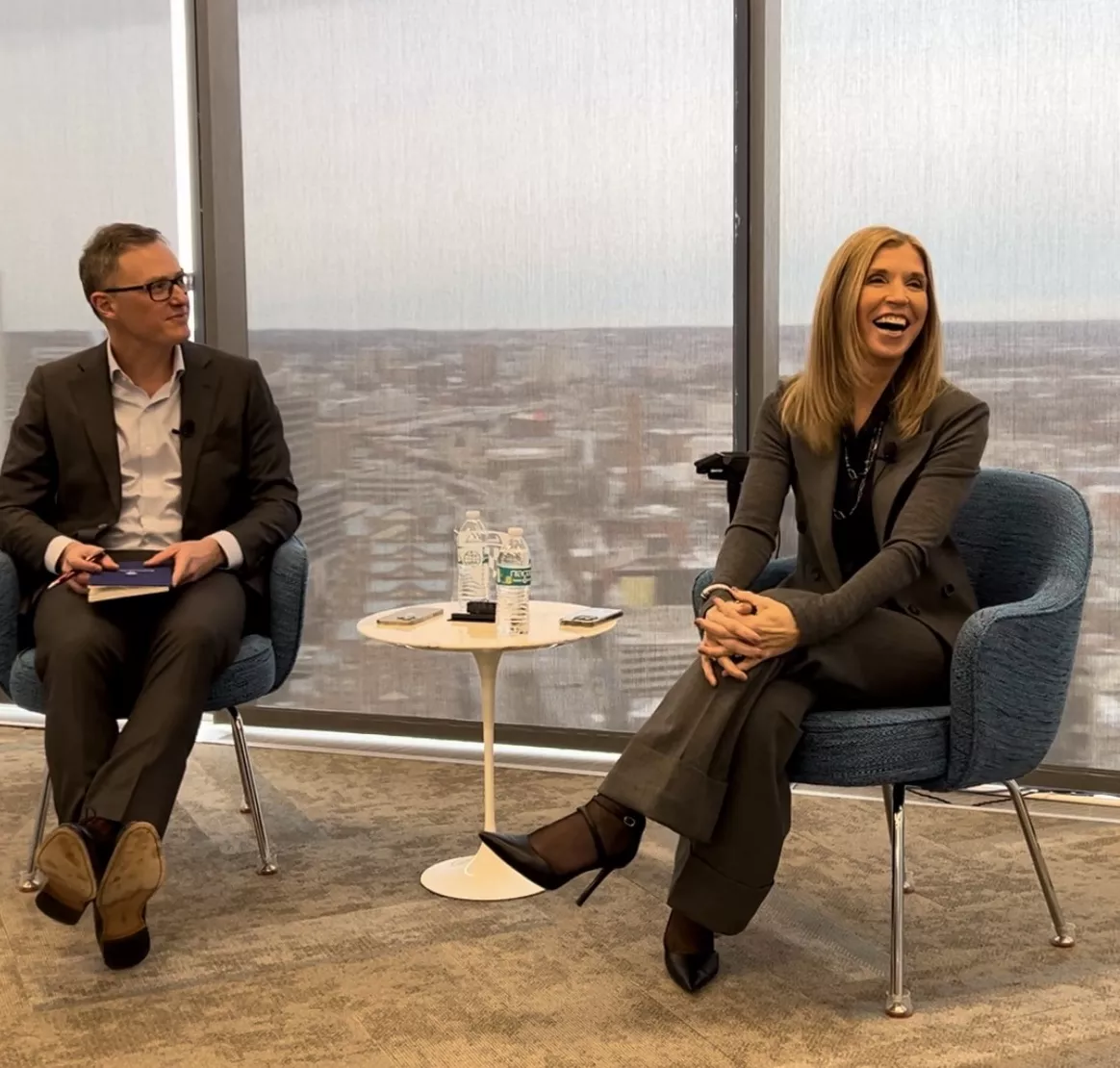The Master of Science in Health Care Management program at Johns Hopkins Carey Business School benefits from the resources and reputation of the Johns Hopkins Schools of Medicine and Nursing, and the Bloomberg School of Public Health. Through this extensive shared network, the health care management program has provided students with direct access to some of the most influential leaders in the industry.
As part of the Conversations in Health Care Management series, Academic Program Director Michael Darden recently sat down with Redonda Miller, president of Johns Hopkins Hospital. Dr. Miller shared her expertise on hospital leadership, talent retention, global health care initiatives, and the evolving challenges of the industry.
Hospital leadership and talent retention
Introduced by Dean Alex Triantis, Dr. Miller outlined Johns Hopkins Hospital’s mission of medical innovation and community care. She described her day-to-day responsibilities, emphasizing the need for adaptability in overseeing hospital operations, patient care improvements, strategic resource allocation, and strategies for attracting and retaining top medical talent.
She highlighted key strategies for recruiting and retaining the best people, which include aspects like market adjustments, communication, clear career pathways, mentorship programs, and internal talent development. She also stressed the importance of qualities like teamwork, initiative, and follow-through when selecting candidates.
To foster a strong workplace culture, the hospital invests in supportive mentorship programs and internal career development initiatives designed to enhance employee morale and engagement, with ongoing efforts to measure their impact and effectiveness.
Maryland’s unique health care payment model
The discussion then covered the Maryland Total Cost of Care Model, which is a contract between the state and federal government that sets annual revenue limits for hospitals, regardless of patient volume. She discussed the positive and negative aspects of the model, as well as the upcoming Ahead Model, which will continue the global budgeted revenue system but with a stronger focus on population health, primary care, and health equity.
She noted that revenue constraints under the model have led to deferred capital investments and speculated that other states have not adopted a similar approach because the Commission’s primary leverage–controlling hospital costs–is already below the national average in Maryland.
Global collaborations and growth
Another key topic was Johns Hopkins’ expanding global presence. She shared insights from her recent trip to the Middle East, where she helped develop global collaborations with Saudi Arabia and the UAE. She emphasized the importance of balancing international initiatives with the hospital’s need to serve the local community and maintain the institution's reputation. She also highlighted the joint venture with Johns Hopkins Aramco Healthcare in Saudi Arabia, which Johns Hopkins owns and operates, and which serves 300,000 patients.
Strategic leadership and crisis preparedness
Moving onto strategic leadership, Dr. Miller acknowledged the challenges of integrating policies and the importance of being open to new opportunities. She answered questions about planning for crises like the COVID-19 pandemic, and shared lessons learned from past health emergencies like the Ebola outbreak, again emphasizing the need for appropriate cash reserves, ventilator stockpiles, personal protective equipment, and being prepared for future challenges.
Work-life balance
Despite the demands of hospital leadership, Dr. Miller stressed the importance of maintaining a healthy work-life balance. She shared insights on setting priorities and creating a culture that supports professional growth while allowing time for personal well-being.
Conversations in Health Care Management
The Master of Science in Health Care Management program hosts a monthly series of conversations with health care leaders about the intricacies of the industry. Conversations center around topical issues in the speaker’s specialty, with the opportunity for students to become familiar with the health care job market, and to learn about the role of a high-level executive.
The next conversation will feature David Maine, CEO of Mercy Hospital on March 5, 2025. If you’d like to attend, you can sign up on the Conversations in Health Care Management webpage.
